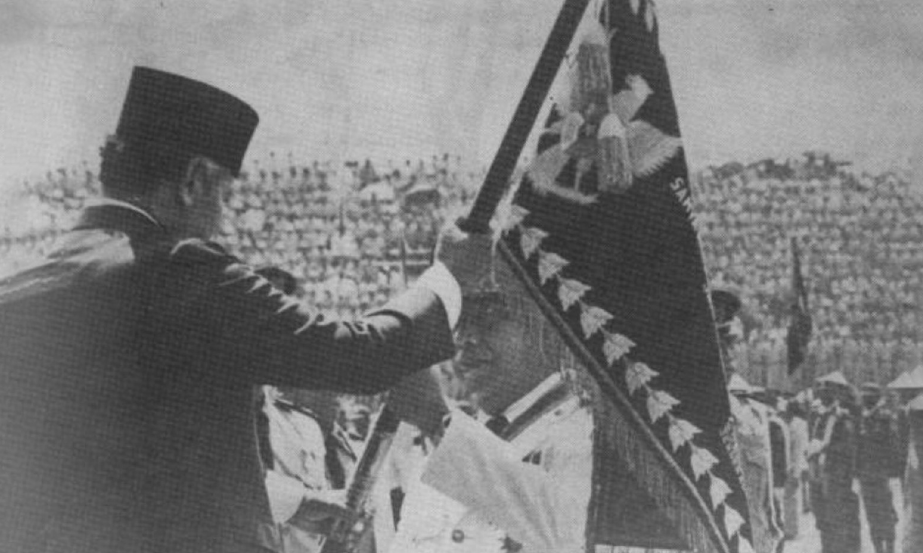By: Prabowo Subianto [taken from the Book: Military Leadership Notes from Experience Chapter I]
One thing I learned about leadership from Cak Noer can be formulated in a short sentence that he conveyed to me himself: ‘Prabowo, the task of the leader is very simple. A leader must work so that the poor and the pitiful can laugh’.
The logic is simple: if the poor are in a state of deprivation, but they can laugh, then it means that they believe that there is hope. They hope that a leader can address the difficulties. It’s the leader’s job, according to Cak Noer. I consider that as a wise and fundamental thing that I will never forget.
The leader’s job is to work so that the poor, the pitiful, and the weak can be happy. When someone is laughing, it means that he is happy.
‘A leader must work so that the poor and the pitiful can laugh’. Cak Noer’s wisdom is now my leadership philosophy.
Pak Mohammad Noer was better known as Cak Noer. I only knew him after his retirement. I met him briefly when he was the ambassador for France. Then I had a chance to have a more in-depth conversation with him once he had retired and returned to Surabaya.
As a Governor of East Java, he was known to be close to his people. I felt the need for a discussion with him when I served as the Chairman of the Indonesian Farmers Association (HKTI). Perhaps he knew that I was also very concerned about the state of agriculture and the fate of farmers in Indonesia. He accepted my offer to give a briefing in a seminar organised by HKTI in Surabaya. Then, I had several conversations with him.
Many of his views on rural economic development, as well as on the people’s economy, are aligned with mine. We believe that Indonesia can be self-sufficient and that it must be self-sufficient. Both of us want to provide a better income to farmers, who are vital to the nation’s food security and self-sufficiency.
Of his many stories, there are some interesting points to note. First, he told me that he often took all of his main staff to travel from village to village. He told me he often carried out meetings in village halls, district halls, and regency halls. Once a month, he would be working outside the capital for two to three weeks and work in village and district offices instead. That was how he could observe and listen to the problems people are facing.
One of the lessons in leadership that he taught me was a simple sentence. He said to me: ‘The task of a good leader is very simple. A leader must create conditions to make his people smile.’ The Javanese is: yen wong cilik iso gemuyu. A leader must work so that the little people (the poor) must be able to smile.
This has a big meaning for me. If the poor can smile, they are on the way to overcome their poverty. It means they have enough to eat, and their children can go to school and have health services at no cost. So even though the sentence was short, the meaning had a very large and deep impact on me. That was my motto in all my political campaigns. I will work so that the people of Indonesia can smile. Especially the poor.

